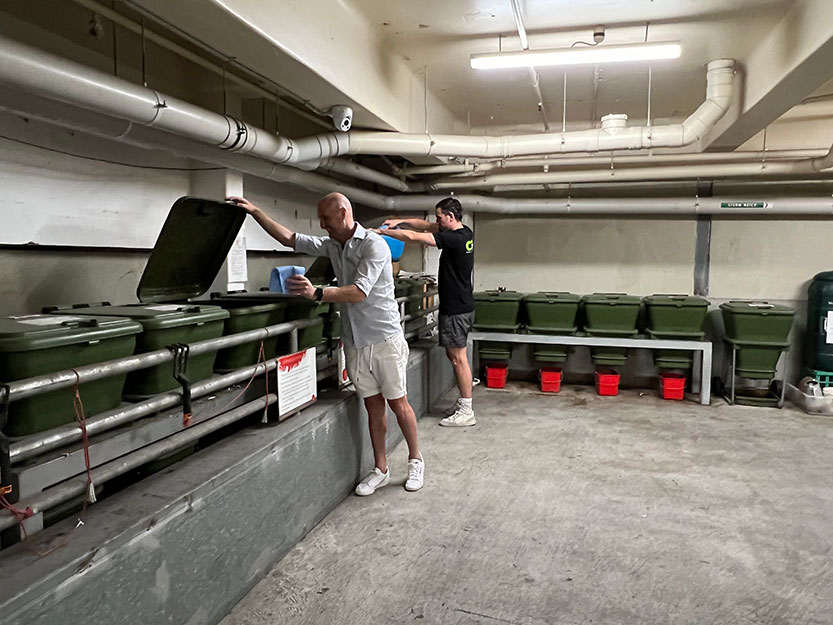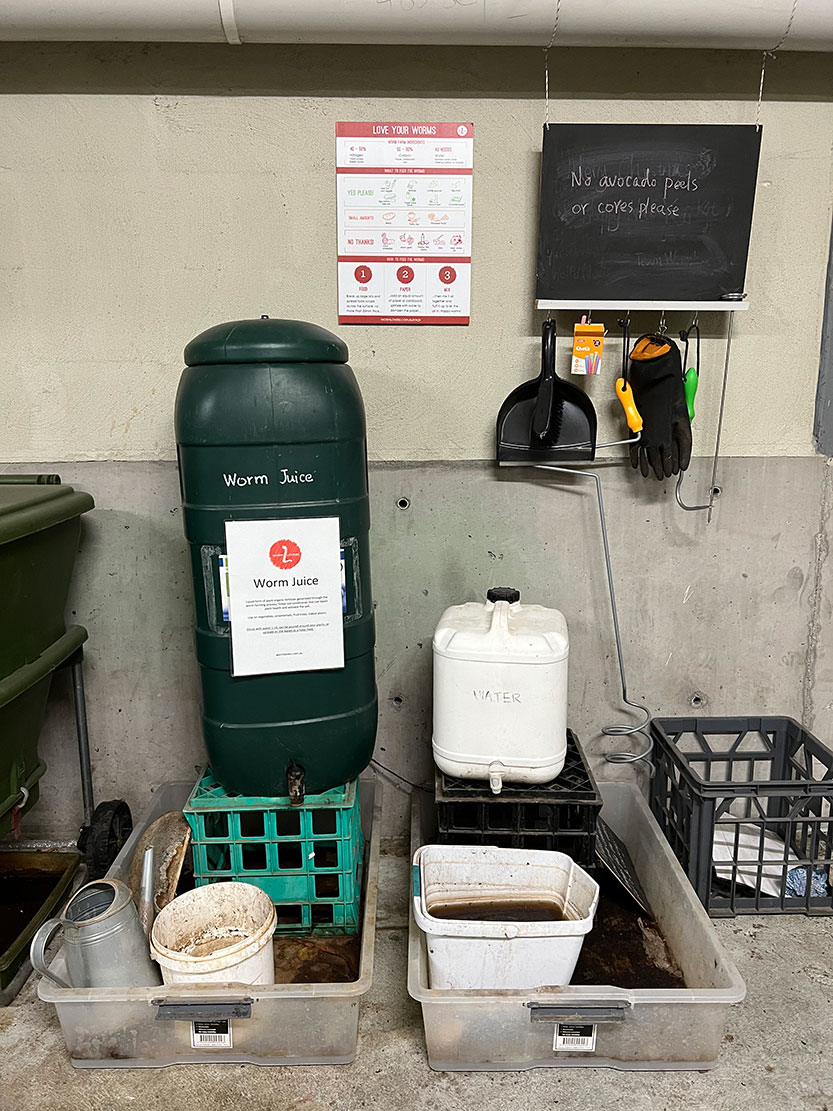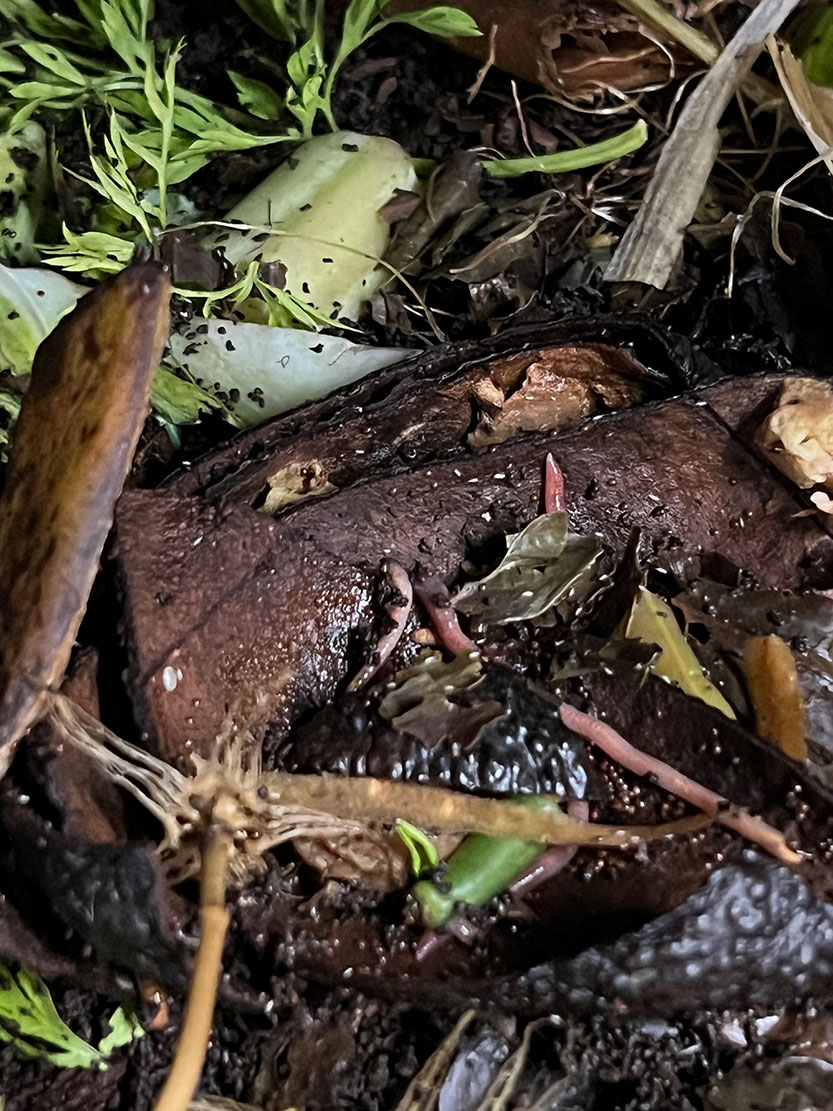The secret lives of worms
Does your building have worms? No, this is not some uncomfortable affliction, it is to do with “saving the planet”. It is all about recycling your building’s day-to-day leftover vegetable matter.
The Hero Apartments at the corner of Russell and Little Collins streets, have a thriving worm farm in their car park. In fact, I am told that it is the biggest worm farm in the CBD. If your building does not have one, then it should!
Hero’s residents love the worm farm. They know that there is a huge saving in the total volume of waste from the building when they take their vegetable waste to the farm. Then they benefit from having a ready supply of liquid fertiliser for their indoor and outdoor plants as well a soil fertiliser which is harvested about three times a year.
The worm farm needs to be large enough to cater for the number of residents in the building. In about 2016 the Hero building set up a trial worm farm with help from the City of Melbourne. In no time the farm became popular. So much so, that the farm was expanded with extra bins and taken over by the owners’ corporation.
It is essential that the worm farm be professionally maintained. In Hero’s case, the farm is professionally attended to every two weeks. Each bin is examined to see that the worms are healthy and not over fed.
At Hero, the farm is so successful that excess food is often transferred to other local smaller farms to boost their supply. In between maintenance visits, the Hero building manager and keen residents keep the farm in good order.
The routine maintenance schedule involves labelling the bin covers as either “Feed Me” or “Don’t Feed Me” ensuring that the worms are not over fed.
To keep the food (nitrogen)/paper (carbon) balance optimal at about 50/50, shredded old CBD News (sorry Sean!) paper is added. The worms’ environment is then mildly moistened to keep the humidity just right. The feed layer needs to be kept light and fluffy so that there is plenty of air circulating, allowing the magic microbes enough space to do their job.
Regular maintenance ensures that the area is kept neat and tidy, that reminder notices are maintained, the worm juice dispensing tank is filled, and any casings (worm soil) is set out in bins for residents to collect.
Having a communal farm in the building is much better than residents trying to run individual smaller farms in their apartments. Even though worms are top feeders, they benefit from large and deep bins. It seems that the quality of the casing and worm juice is better with the specially designed bins.
Secret lives
You can easily tell if the worm farm is healthy. When you raise the bin lid, you are greeted with a pleasant “out in the country” freshness smell, like a walk in a market garden. You should see lots and lots of worms. They immediately scurry away under their food or into the soil. Worms don’t like the daylight.
Worms must have a healthy diet, just like us. All sorts of fruit and green vegetable scraps, tea bags, small cuttings from your balcony garden, coffee grounds and even eggshells are fine.
Chopping these titbits into small pieces is best. The idea is to ensure that the food does not take too long to break down. But worms should not be fed any animal products, oils, detergents, acidic foods like citrus, onions or pineapple nor waxed or coated paper.
Worms do not like the hot weather. Temperatures greater than 30 degree C are a problem. Keeping worms in a cool underground car park helps. Otherwise, a frozen bottle of water needs to be put in each bin to keep a cool zone for the worms.
Residents 3000 – next Forum 3000
Our next forum will be held at the Kelvin Club on Thursday, March 7 at 6pm. We welcome City of Melbourne CEO Alison Leighton.

City of Melbourne unveils next urban forest plan for the CBD










 Download the Latest Edition
Download the Latest Edition